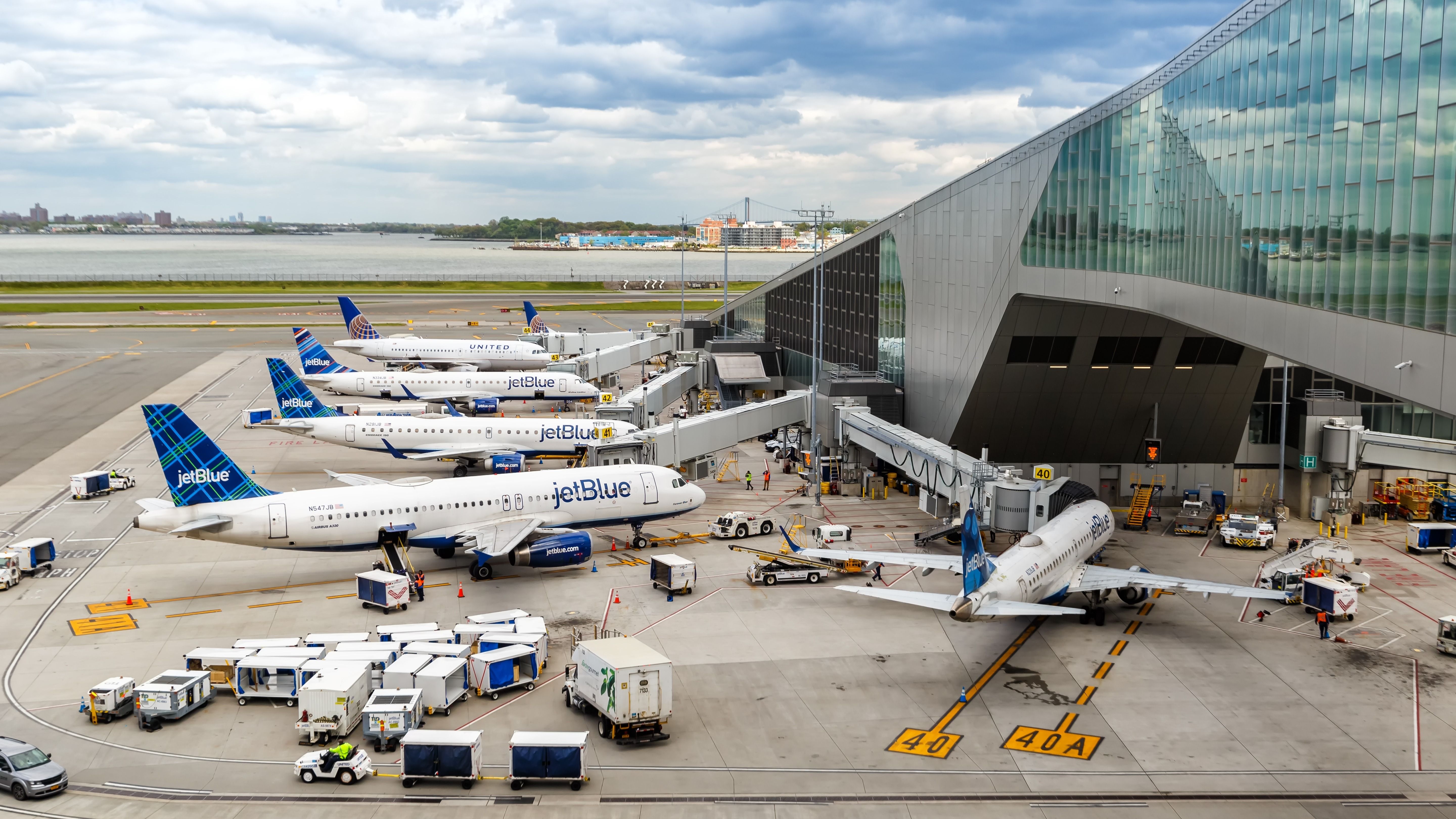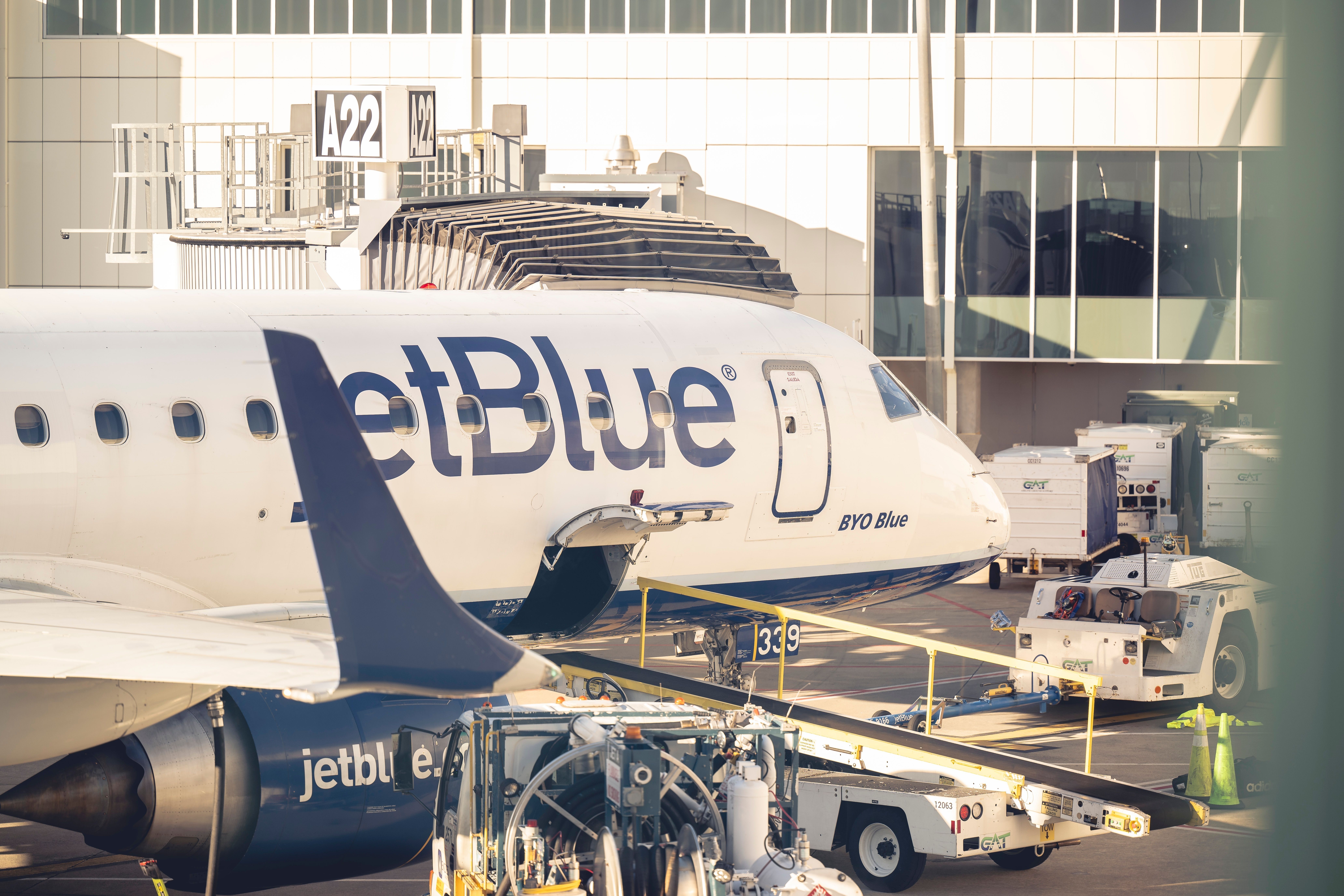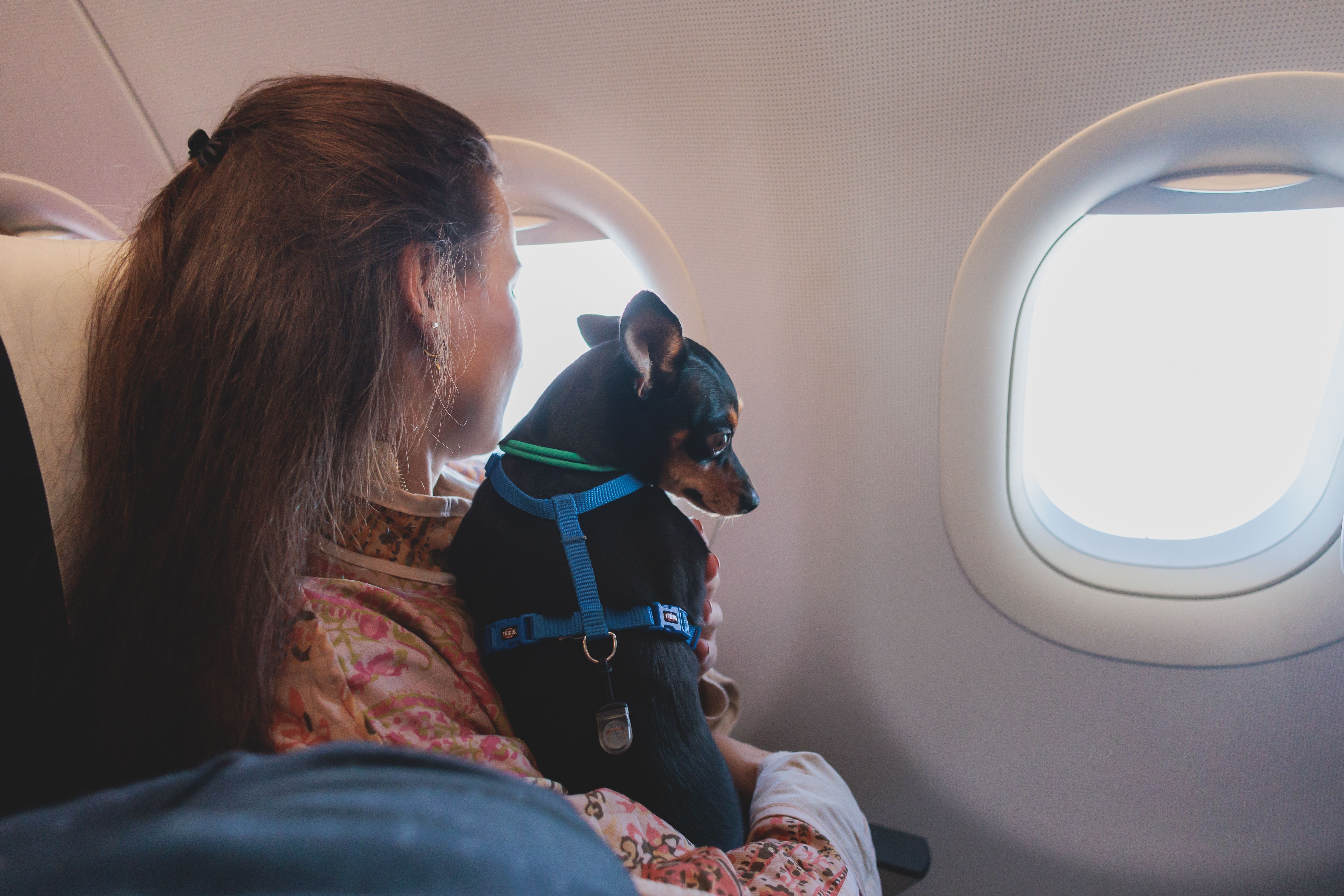Summary
- New USDOT regulations cracking down on untrained emotional support or service animals have led to increased difficulties for visually impaired people traveling with their service animals.
- Elizabeth Shoen, who is blind, was denied from boarding a JetBlue flight with her guide dog due to a form submission issue.
- Blind travelers find the required service animal applications challenging due to compatibility issues with screen readers.
In 2021, the US Department of Transportation (USDOT) implemented new regulations that cracked down on the rise in airline passengers traveling with untrained emotional support or service animals. Since the new rules took effect, several people with disabilities have reportedly encountered more trouble traveling with their service animals.
Visually impaired people have notably suffered from the recent difficulty of being permitted on aircraft with their service animals. The number of complaints has reportedly skyrocketed since the DOT carried out the new regulations.
Denied from boarding
According to The Washington Post, Elizabeth Shoen was traveling to Boston last March to tour graduate schools when she was denied from bringing her guide dog Eva onboard with her. The black Labrador helps Shoen, who is blind, avoid obstacles and navigate crowded environments by finding elevators and following people to the baggage claim areas.
Four days before her flight on JetBlue Airways, Shoen attempted to submit a form about traveling with her guide dog, but the airline reportedly rejected it. Instead, a JetBlue customer service representative told the 21-year-old from Arlington, VA, to bring the form to the airport on the day of her flight.
When she got to the airport, the airline staff informed Shoen that she submitted the form late. She tried to explain her situation and how JetBlue needed to make accommodations for her and Eva but was told that the carrier had the right to turn her and her dog away, according to The Washington Post.
Get the latest aviation news straight to your inbox: Sign up for our newsletters today.
One of many situations
As a result, Shoen missed her flight and flew on a different airline the next day after spending about $400. JetBlue later reimbursed her for her original flight, but she learned the form was rejected because she listed incorrect flight information. The situation is reportedly one of many where Shoen has run into trouble with submitting a form and being mistreated by airline workers.
In a statement to The Washington Post, she explained her feelings.
“It’s made me more scared. Every time I go to the airport, it’s like, ‘Are they going to stop me?’” “Even if I know I’m approved, I still feel this pressure, like I’m under a microscope.”
JetBlue confirmed that timely submission of its service animal form is necessary to determine whether the animal is qualified to fly. A spokesperson reportedly said that 80% of forms are approved, but the animal may not be allowed to travel if it is not submitted in advance.
Travelers who are blind have also said the required applications are challenging to fill out because they are not always compatible with screen readers that are used to convert text to speech. In interviews with The Washington Post, blind people have expressed that the USDOT’s rules are difficult to navigate, making them hesitant or anxious to fly. Several organizations for the blind also call for the forms to be altered or completely axed.
Complaints taking off
With the new regulations, airlines can require passengers to complete their forms at least 48 hours before departure, but they also reportedly must make a reasonable effort to permit all passengers with service dogs to travel even if the document is not submitted on time.
Over the years, complaints from people with disabilities have increased. In 2018, the USDOT received 116 complaints. When the new rules were implemented three years later, the agency reported 464 complaints, and last year, 451 complaints were filed, according to The Washington Post.
Source: The Washington Post
Do you think the USDOT’s regulations have gone too far? Let us know in the comments.



